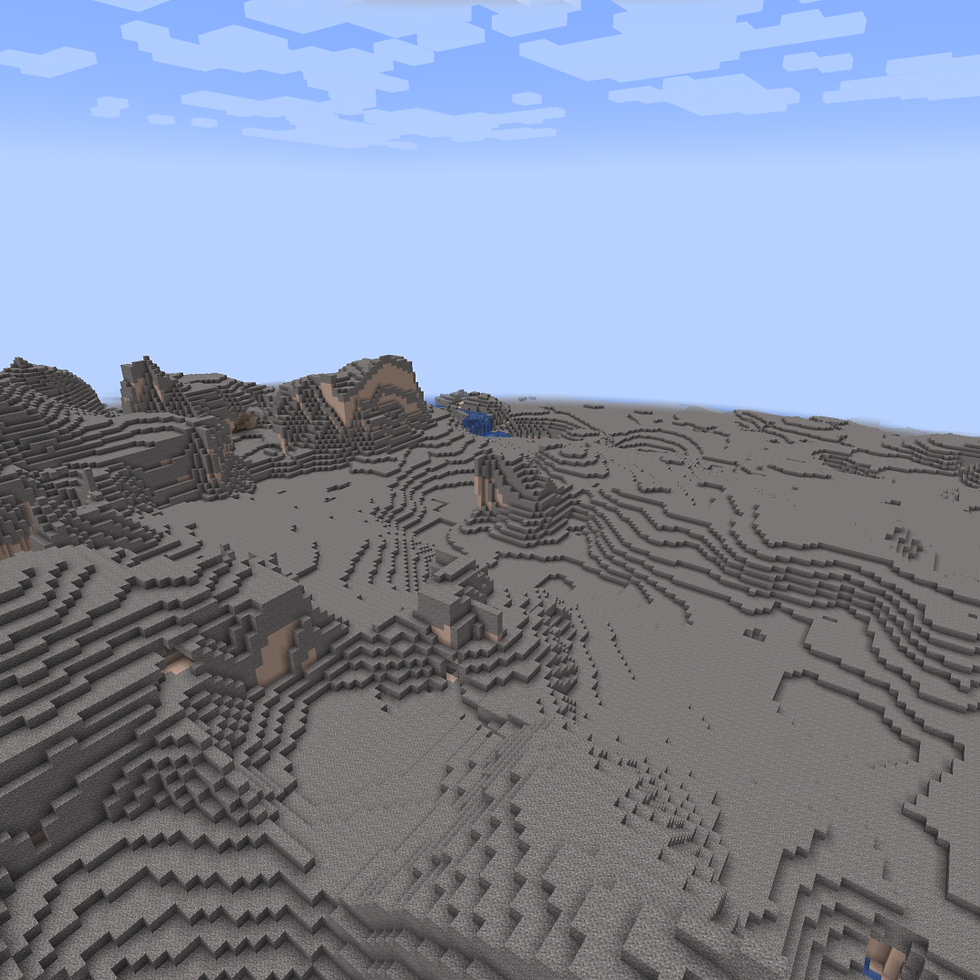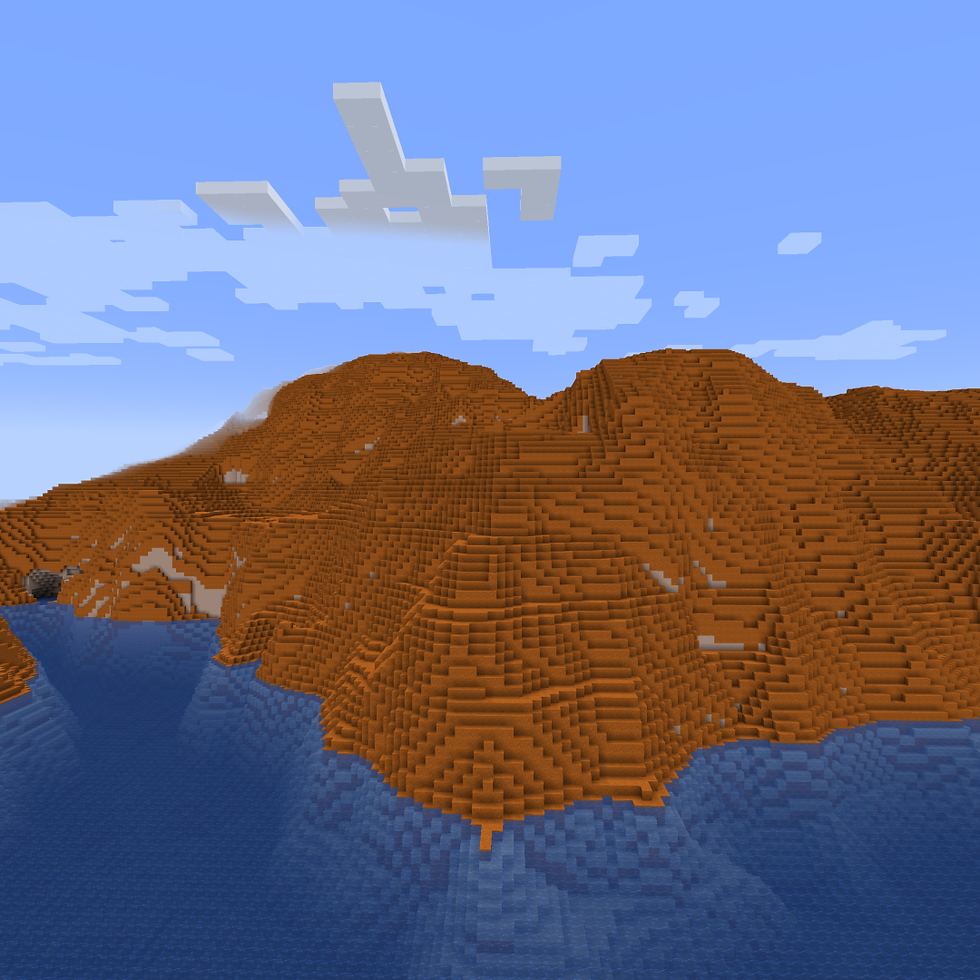Biome Settings For MCreator 2023.1
- ИοףϯԋϢєѕϯΤгєєѕ

- Jan 5, 2023
- 4 min read
Updated: Oct 6, 2023
Biome Settings For Generation
Some major changes have been made to the biome generation settings since my last video which covered 1.18 Biome settings for generation. If you have not watched that tutorial I highly suggest watching it so it makes a bit more sense with the new settings.
How to make biomes for 1.18
Climate Settings
Climate Temperature
This setting controls what biomes use for temperature, this will be later used in Generation Settings for temperature when finding a place for the biome to generate.
0.0 is like the Snowy Tundra, and 2.0 is like the Desert.
Values less than 0.15 will make custom biome snow when downfall is happening
Values between 0.15 and 1.5 make the biome rain
Values larger than 1.5 will make the biome dry (disable rain, deserts for example)
Climate Rain Possibility
This value controls the chance of the world starting to rain when a player is in the biome.
Lower values make rain/snow not as common
Higher values make rain/snow more common
Vanilla Generation
Overworld Generation
This setting will allow you to generate the biome in the overworld for surface biomes.
Overworld Cave Generation
This setting will allow you to generate the biome as a cave biome in the overworld.
Nether Generation
This setting will allow you to generate biomes in the Nether dimension.
Generation Notes
Keep in mind that many values for Minecraft world generation settings may use specific values and you may need to adapt your biome to match or use values outside of the vanilla ones for the biome to generate in the desired world.
End biomes are currently not supported as they may still use an older system like how the nether did not have proper biome support until 1.16. Mojang may add proper support in the future but MCreator does not have the ability to add support until then.
Generation Settings
So there are several settings now for biome generation that control the weight of the biome
Biome generation temperature range
Biome generation humidity range
Biome generation continentalness range
Biome generation erosion range
Biome generation weirdness range.
Overview
Each set will have an impact on how the biome generates and some other factors.
Temperature and humidity are values that don't really have any noise configuration but the other three will impact how the biome looks and generates based on how the landscape is around the world when it generates so let's take a quick look at each setting and I will do my best to explain the differences between each one.
Temperature Generation
This setting controls where biomes generate based on the biome temperature, not to be confused with the "Climate Temperate" setting. Temperature generation will find similar biomes in temperature than have it spawn in that range.
Vanilla biome settings are listed below.
Minimum | Maximum |
-1 | -0.45 |
-0.45 | -0.15 |
-0.15 | 0.2 |
0.2 | 0.55 |
0.5 | 1 |
Humidity Generation
Controls where the biomes generate based on humidity ranges. So the closer the humidity of the biomes is the likelihood of them generating next to biomes with that range.
Vanilla biome settings are listed below.
Minimum | Maximum |
-1 | -0.35 |
-0.35 | -01 |
-0.1 | 0.1 |
0.1 | 0.3 |
0.3 | 1 |
Continentalness Generation
Continentalness controls how far the biome is from the coast. Smaller values mean biomes closer to the coast and higher values mean biomes further from the coast and with higher height (e.g. mountains).
Biomes with similar continentalness will generate closer together and will compete for the same spot in the world when generating. Too similar values will result in some biomes not generating.
While values from -2 to 2 are valid, vanilla biomes only use values in the range from -1 to 1.
Overworld vanilla biomes use these value ranges:
Location | Minimum | Maximum |
Deep Ocean | -1.05 | -0.455 |
Ocean | -0.455 | -0.19 |
Coast | -0.19 | -0.11 |
Inland | -0.11 | 0.55 |
Near Inland | -0.11 | 0.03 |
Mid Inland | 0.03 | 0.3 |
Far Inland | 0.3 | 1.0 |
Erosion Generation
Lower numbers will make biomes flatter, larger numbers will make biomes more maintained. Lowering the values can still generate small mountains but will be mostly flat in the biome.
Vanilla biome settings are listed below.
Minimum | Maximum |
-1 | -0.78 |
-0.78 | -0.375 |
-0.375 | -0.2225 |
-0.2225 | 0.05 |
0.05 | 0.45 |
0.45 | 0.5 |
0.55 | 1 |
Values with low erosion (-2.0 and -1.9 values)

Values with high erosion (1.9 and 2.0 values)

Weirdness Generation
In some cases you may want to use the same settings for a few biomes, this is where weirdness generation comes in, normally if you attempt to do this with the same settings biomes will fight over who gets priority over the space.
So it makes sense to have a way to change the settings but allow for grouping biomes in the same noise and climate settings.
An example when this may be used is with the Savanah Biomes another example would be for two completely different biomes like Forests and Plains they may use the same noise and climate but you might use this so that they mix with each other better.
So this brings us to how to actually use the settings. Sadly there is not a lot of documentation so I have had to play around with the settings and isolate what it actually does.
From my tests, I have noticed it uses a percent-like system in that biomes can be allocated a section of the value between -2 and 2 (vanilla worlds and biomes use -1 to 1)
With that said it can be used to make biomes a bit rare by controlling the weight of what priority they will spawn in. The other use is to group biomes into the same class for a generation.
This example below shows how you would go about making two biomes generate equally. Think of the image as a progress bar each colour representing one biome and the odds of it generating

As you can see biome A and biome B both have an equal chance of generating in the same space but using this method will make the generation only happen for half of the total space allocated for the climate and noise settings.
Let's take a look at another example.

This one is a bit different we have three biomes, A and B use the same amount of space for the bar but biome C uses a lot less, the result would be that Biomes A and B will generate more commonly but you will rarely see biome C. Biome C may also be a bit smaller than biomes A and B so keep this in mind when allocated space.
One last final note is for Minecraft Biomes the range is not -2 and 2 but the vanilla worlds use -1 and 1 so adjust your bar based on those ranges.


